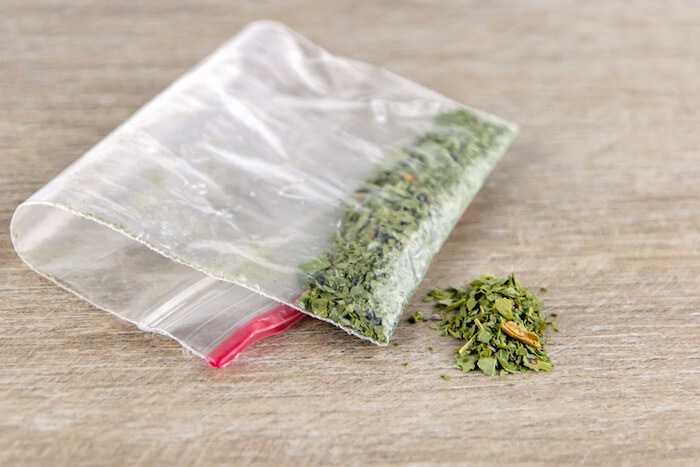Suppose you are considering addiction treatment at a residential rehab or have already received treatment. In that case, this blog will provide important information to help you have a relapse-free life after rehab. Life after addiction can be fulfilling, but that doesn’t mean it won’t be challenging. It’s critical to surround yourself with people who support you in committing to your addiction recovery after completing addiction treatment or leaving drug or alcohol residential rehab.
While in rehab, you will learn how to manage triggers and discover ways to create structure in your daily life. But, with the 24-hour support you receive, leaving the safety of residential rehab can be incredibly daunting. One of the questions our addiction team is often asked is, “What happens after rehab?”.
As a recently sober and healthy person, various resources can help you remain addiction-free. Addiction aftercare can be accessed through the NHS, or you can use the FRANK website to find a local drug and alcohol support centre and valuable support groups.
Step by Step Recovery provides confidential addiction treatment advice and quick admission into our residential rehab facility in Essex. Please contact us for no-obligation guidance by filling out our online form or calling our helpline at 0800 170 1222.
What Happens after Rehab?
Discharge day is your first day of life after rehab. You will have prepared for your discharge with your addictions treatment team at the rehab. Your discharge plan should include the following:
- Support groups and contact information
- Medications list and when to take them
- The emergency number for admission in case of a relapse
- Daily schedule to follow.
When you return home, it’s critical to start following a daily schedule. This should be set out to include when you eat lunch and dinner and enjoy planned activities. It could look something like this:
|
Get up: 8 am |
Shower, brush your teeth and get dressed |
|
Breakfast: 8.30 am to 9 am |
Prepare breakfast, eat and then tidy away |
|
Activities: 9 am to 12 pm |
|
|
• 10 am to 10.30 am |
Go for a walk or plan an activity |
|
• 10.30 am to 12.00 pm |
Watch TV, read a book or listen to music |
|
Lunch: 12.00 pm to 12.30 pm |
Prepare and eat lunch |
|
Activities: 12.30 pm to 5.30 pm |
|
|
• 12.30 pm to 1.30 pm |
Go for a walk or plan an activity |
|
• 1.30 pm to 2.00 pm |
Call mentor/friend/family member |
|
• 2.00 pm to 3.00 pm |
Go for a walk or plan an activity |
|
• 3.00 pm to 3.30 pm |
Laundry / hoover / clean kitchen or bathroom |
|
• 3.30 pm to 4.30 pm |
Read a book or listen to a podcast |
|
• 4.30 pm to 5.30 pm |
Go for a walk or plan an activity |
|
Dinner: 5.30 pm to 6.30 pm |
Prepare and eat dinner |
|
Activities: 6.30 pm to 10 pm |
|
|
• 6.30 pm to 7.30 pm |
Go for a walk or plan an activity |
|
• 7.30 pm to 8 pm |
Select nightwear and take a bath or shower |
|
• 8 pm to 8.30 pm |
Hot drink and call mentor/friend/family |
|
• 8.30 pm to 10 pm |
Watch a film/listen to a podcast/read a book |
|
Bed: 10 pm |
Brush teeth and go to bed |
During the first week after leaving a residential rehab, you need to have a schedule to ensure your time is filled and you are not feeling bored or lonely. After some time, you may feel confident enough to schedule times for your breakfast, lunch and dinner, support groups you need to attend, and regular telephone calls to your mentor, friends, or family.
5 Key Addiction Recovery Tips for Preventing Relapse
1. Make Your Schedule Your Main Priority
Remember that your main priority is staying well. Create a daily schedule and follow it. Make a schedule for your days, including when you’ll wake up, go to work or school, work out, and eat. In addition, you should schedule time for counselling or meetings, quiet time, and socialising with family and friends. Having an organised schedule will help to prevent you from feeling isolated and bored — frequent causes for relapse.
2. Adopt a Positive Outlook
Keep in mind a few things in your life that you are grateful for daily, such as your home, the food you eat, and your freedom to go outside when you choose. Concentrate on thinking about the best things in your life. Keeping a gratitude journal or writing a list of three things you are grateful for before bed can assist you in doing this every day.
3. Understand Your Triggers
A relapse may occur after a difficult day or a significant event. Ensure you have someone you can contact 24 hours a day if you are struggling with cravings. Embrace being accountable for your feelings and accepting when you might need another person for support.
4.List Your Objectives
Setting objectives for yourself is crucial, particularly in the early stages of recovery. You’ve regained control and need to take charge of your life again. Think about things you haven’t been able to do because of your addiction. Maybe you avoided travelling or didn’t go back for further education?
It can be helpful to make a list of all of the things you want in your life. This could include:
- Training for a new career
- Travelling abroad
- Mending relationships with friends and family
- Improving your diet
- Exercising or learning a new sport.
5. Participate in Support Groups and Meetings
Attend meetings and/or support groups. Members of these groups are a part of your network of sober allies. These will be the people you can rely on when things get tough. They will encourage you to maintain your sobriety and help you remain in charge. Try out a few different support groups or meetings before deciding which one is made up of peers who you feel a connection with.
Taking Control of Your Life After Addiction
Maintaining your addiction recovery and avoiding relapse requires consistent work and total commitment. Research indicates that most drug abuse relapses occur during the first six months after leaving addiction treatment programmes. If you use the skills you learned in rehab and continue to participate in recovery and aftercare, you have a much better chance of successfully maintaining your addiction recovery.
Life after addiction generally becomes easier after the first six months. However, you are never “cured” of an addiction. During the first six months, you have to choose to prioritise your addiction recovery over every other aspect of your life. Recognition that addiction is a chronic mental illness is a vital step towards making this happen. Adhering to a daily schedule, addiction aftercare, and attending support groups regularly are tremendously important for relapse prevention.
It’s also vital to cut off contact with anyone you know who might encourage you to drink alcohol or use drugs again. Avoid places where you might come into contact with people who can supply you with drugs. Even when you have maintained your sobriety for over six months, never allow yourself to believe that you won’t be tempted to use drugs or alcohol ever again. This kind of attitude can be detrimental and frequently results in relapse. You can achieve lifelong recovery — but only if you’re prepared to put in the necessary effort and continue participating actively in recovery from addiction.
At Step by Step Recovery, we want to ensure that you have the tools and resources you need to support you or a loved one to lead a fulfilling life after addiction treatment. We know addiction recovery is an ongoing challenge, so we have created our New Way to Live peer mentoring scheme. Regardless of the facility where you or a loved one received addiction treatment, we aim to provide a mentor to any individual who has completed residential rehab.
For more information about the New Way to Live scheme or for free, confidential advice on overcoming and treating addiction. Please call our understanding team at 0800 170 122, or enquire through our online form.




